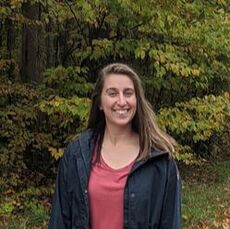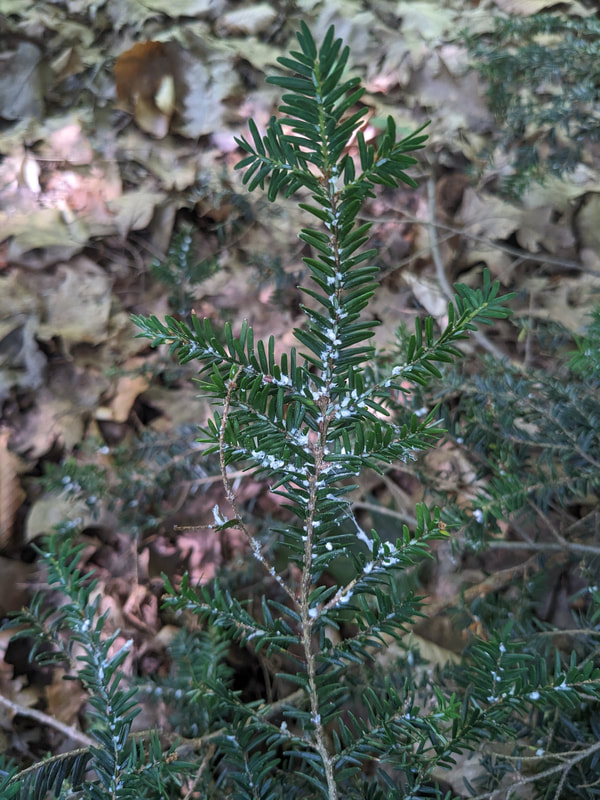If you own forested land, we would like to offer you assistance in managing this precious resource to keep it healthy and productive.
About the Forestry Assistance Program
According to a survey by Michigan State University, only 20% of privately owned Michigan forests are actively managed. The Forestry Assistance Program (FAP) is dedicated to helping more landowners get the assistance they need to steward forest resources. Our FAP District Forester helps you navigate good forest management practices by providing the following services:
- Free site visits
- Connections and referrals to forestry professionals
- Information on forestry pests and diseases and other health concerns
- Guidance on property enrollment programs
- Recommendations for timber sales
- Educational events, and more.
Scroll down to learn more about these services. FAP is funded by the Michigan Department of Agriculture and Rural Development.
Site Visits
|
Our District Forester is stationed in Leelanau Conservation District and services Benzie, Leelanau, and Grand Traverse County landowners. She is available to hike your woods with you and discuss the general health of the forest, and listen to what your goals are with regard to the land, vegetation, and wildlife. As an initial contact for management advice, she will provide you with both management strategies and connections to professionals that can assist you in making the dreams you have for your land a reality.
To connect with our District Forester for a free site visit, please complete the following form: You may also contact our forester for concerns about your trees, information on forestry pests and diseases, and forest management advice.
|
Connections and referrals to forestry professionals
|
If you need to hire a specialist for a land management project, we can connect you with a variety of public and private resource professionals. Browse lists of providers by service type (such as tree care, forest management plan development, landscape design, logging, and more).
You may also follow the instructions below to have your request added to a list of open projects that resource professionals may pursue:
Your land deserves the very best care. As you explore options for hiring resource professionals, be sure to review each practice’s fee structure and services before choosing who you would like to hire for your land management project. |
Forestry Health Concerns
|
A variety of invasive pests, diseases, and other tree-targeting threats have been found in northern Michigan. Help keep Benzie County’s forests safe by learning to identify pests and diseases, reporting them to the appropriate groups, watching for symptoms of unhealthy trees, and practicing good forest management.
learn to identify and manage forest pests and diseases
report forest health concerns
If you believe you have found signs of any of the invasive pests or diseases listed in the links above, please send a picture and a description to our District Forester: [email protected]. We encourage you to also report them to the following places:
discover climate change resources
|
Qualified Forest Program (QFP) property enrollment
|
Administered by the Michigan Department of Agriculture and Rural Development (MDARD), the Qualified Forest Program (QFP) is a forest property tax program that helps landowners achieve their forest management goals for sustainable harvests, wildlife habitat improvement, and related conservation efforts. This program can:
Eligibility varies by the amount of land stocked with productive forest and is only possible for parcels not currently receiving other tax deductions (homestead exemption, agriculture designation, etc.). Parcels 20 to 40 acres must be at least 80% forested, while parcels greater than 40 acres have to be at least 50% forested. Applications for enrollment include a forest management plan written by a qualified consulting forester, an MDARD-administered application packet, and a required annual fee (2 mills). To learn more about this program, please visit www.michigan.gov/qfp or contact the QFP office at 517-284-5630 or [email protected]. Our District Forester, Ellie Johnson, can help determine your eligibility and get you started with the enrollment process. Contact her today at 231-256-9783 x 268, 231-866-0103 (cell), or [email protected] |
A Growing Success: Michigan's Qualified Forest Program Preview.
This video by Michigan Department of Agriculture & Rural Development provides a brief look at the ways this program benefits forests and forest-owners. |
Timber Sale Recommendations
Your trees are an incredibly valuable resource. Along with benefitting the natural environment, they often increase property value and, with good management practices, can be a significant long-term investment. The possibility of a timber sale is affected by multiple factors, such as the quality of wood and the site's accessibility for heavy machinery.
If you are considering cutting your trees for timber, explore all your options to do so sustainably, safely, and cost-effectively. These tips can get you started, and you can learn more at https://www.leelanaucd.org/timber-sale-recommendations.html#/
If you are considering cutting your trees for timber, explore all your options to do so sustainably, safely, and cost-effectively. These tips can get you started, and you can learn more at https://www.leelanaucd.org/timber-sale-recommendations.html#/
- Consult with a forester or accountant to determine if your cutting is eligible for tax deductions, and learn more about tax management for timberland owners.
- Hire a consulting forester who can provide a timber appraisal, advice about long-term management, suggestions to improve the quality of your woodlot, and guidance on navigating your timber sale.
- Ensure you have a lawyer approve your timber sale contract, which grants you legal protections throughout the process of having your timber removed. These contracts should include a performance bond held against the contractor removing the trees, a clause requiring that the contractor and buyer are in compliance with Michigan’s Workman’s Compensation Statutes, a stipulation about what will happen if more trees are cut than agreed upon, and the exact method and due date of payment(s).


